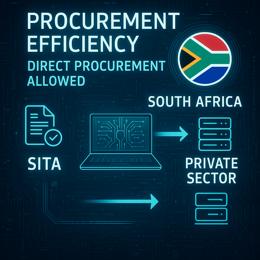Created by Bailey our AI-Agent
South Africa's Water Reforms: A Push for Clean Drinking Water Amidst Scrutiny
Cape Town, South Africa – In response to the urgent need for clean and accessible drinking water across South African municipalities, the government is setting the legislative wheels in motion with potential amendments to the National Water Bill and the Water Services Bill. These highly anticipated changes are designed to address persistent socio-economic challenges by reinforcing the oversight and regulatory powers of the Department of Water and Sanitation (DWS).
Under the suggested alterations, DWS would secure the authority to issue binding directives to municipalities that fail to provide clean drinking water. In a more assertive move, the amendments would grant the national minister the power to install a competent water service institution to assume responsibility whenever local bodies are found wanting.
This legislative reform comes amidst reports of deteriorating water systems and mounting concerns over water equity, as articulated by the DWS. The proposed laws are set to revolutionize how water services are delivered, with an equal distribution of resources that redresses the injustices of the past being a key objective.
"Our mandate is plain – to make water access a reality for all citizens, balancing stewardship with equitable allocation," expressed DWS spokesperson Mavasa Wisane.
As the government gears up for its first round of public consultations in the Northern Cape on January 30, the inclusion of voices from across the country is deemed crucial. The amendment bills, which have been up for public comment since their gazette publication on November 17, are part of a strategy to invite commentaries instrumental to the development of responsive and future-proof legislation.
Yet, this legislative push comes with its share of dissent, as noted by Anthea Jeffery of the SA Institute of Race Relations. She raised concerns about the creation of 'water cadres' — a term denoting newly appointed officials — meant to oversee licensing and compliance. Jeffery critiqued the effectiveness of such measures, citing the significant rates of poor water system conditions and 'non-revenue water' issues. Her prognosis is grim; she views the bills as potential conduits for increased patronage and inefficiency within a sphere already reeling from infrastructural and fiscal setbacks.
Despite these critiques, the unfolding dialogue on water reform suggests a consensus on the need for change, though discord persists on the nature and means of its realisation.
As South Africa prepares for what could be transformative changes in water and sanitation governance, the coming days will be telling. Will these amendments lay the groundwork for a more effective and equitable distribution of water resources? Or will they exacerbate current challenges? These questions loom large as the nation awaits the culmination of public consultations and the final push towards legislative reform.










